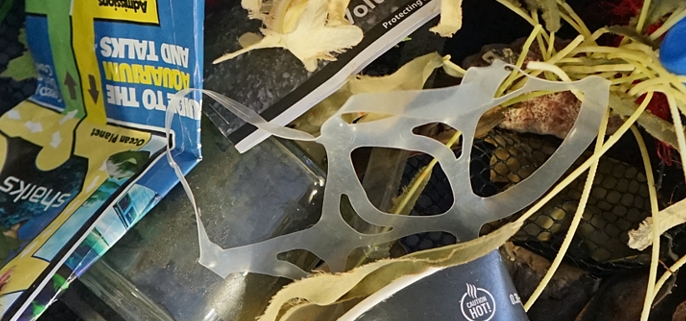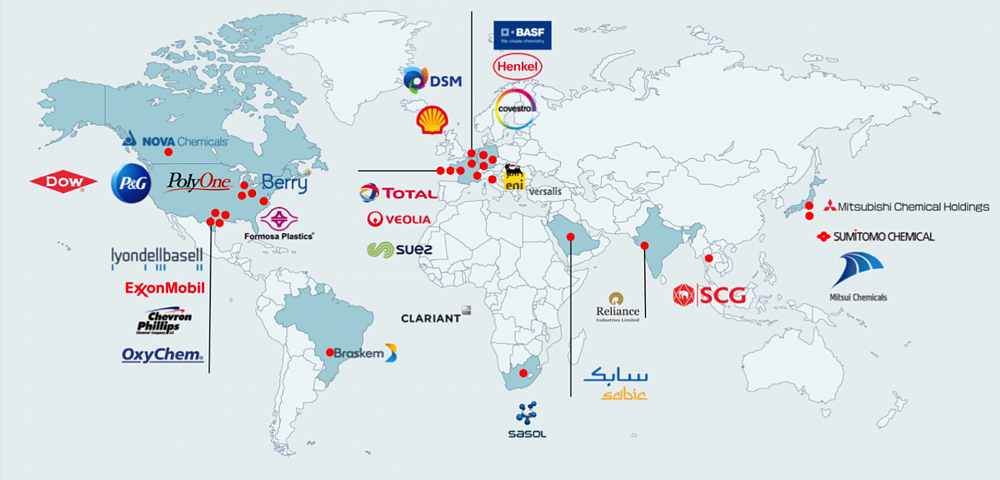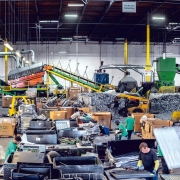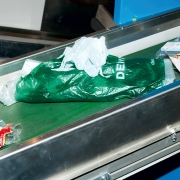New Global Alliance Launched
In January this year, global companies from the plastics and consumer goods value chain launched a new organization “to advance solutions to eliminate plastic waste in the environment, especially in the ocean”.
The “Alliance to End Plastic Waste (AEPW)”, currently made up of nearly thirty member companies, has committed over 1.0 billion US-Dollar with the goal of investing 1.5 billion US-Dollar over the next five years to help end plastic waste in the environment. According to the information, the organization will develop and bring to scale solutions that will minimize and manage plastic waste and promote solutions for used plastics by helping to enable a circular economy. “The Alliance membership represents global companies that are located throughout North and South America, Europe, Asia, Southeast Asia, Africa, and the Middle East,” the press release said.
The Alliance is a not-for-profit organization that includes companies that make, use, sell, process, collect, and recycle plastics – chemical and plastic manufacturers, consumer goods companies, retailers, converters, and waste management companies. As reported, AEPW has been working with the World Business Council for Sustainable Development as a founding strategic partner.
Projects and collaborations
The Alliance to End Plastic Waste announced an initial set of projects and collaborations that reflect a range of solutions to help end plastic waste:
■ Partnering with cities to design integrated waste management systems in large urban areas where infrastructure is lacking, especially those along rivers which transport vast amounts of unmanaged plastic waste from land to the ocean. This work will include engaging local governments as well as stakeholders and generate economically sustainable and replicable models that can be applied across multiple cities and regions. AEPW will also be looking to collaborate with other programs working with cities, such as the Project STOP, which is running in Indonesia.
■ Funding the Incubator Network by Circulate Capital to develop and promote technologies, business models and entrepreneurs that prevent ocean plastic waste and improve waste management and recycling with the intention of creating a pipeline of projects for investment, which will focus on Southeast Asia.
■ Developing an open source, science-based global information project to support waste management projects globally with reliable data collection, metrics, standards, and methodologies to help governments, companies, and investors focus on and accelerate actions to stop plastic waste from entering the environment. AEPW will explore opportunities to partner with leading academic institutions and other organizations already involved in similar types of data collection.
■ Creating a capacity building collaboration with intergovernmental organizations such as the United Nations to conduct joint workshops and training for government officials and community-based leaders to help them identify and pursue the most effective and locally-relevant solutions in the highest priority areas.
■ Supporting Renew Oceans to aid localized investment and engagement. The program is designed to capture plastic waste before it reaches the ocean from the ten major rivers shown to carry the vast majority of land-based waste to the ocean. The initial work will support the Renew Ganga project, which has also received support from the National Geographic Society.
Furthermore, in the months ahead, the Alliance will make additional investments and drive progress in four key areas:
■ Infrastructure development to collect and manage waste and increase recycling;
■ Innovation to advance and scale new technologies that make recycling and recovering plastics easier and create value from all post-use plastics;
■ Education and engagement of governments, businesses, and communities to mobilize action; and,
■ Clean up of concentrated areas of plastic waste already in the environment, particularly the major conduits of waste, like rivers, that carry land-based plastic waste to the sea.
As is emphasized, research from the Ocean Conservancy shows that nearly 80 percent of plastic waste in the ocean begins as litter on land, the vast majority of which travels to the sea by rivers. In fact, one study estimates that over 90 percent of river-borne plastic in the ocean comes from ten major rivers around the world – eight in Asia, and two in Africa. Sixty percent of plastic waste in the ocean can be sourced to five countries in Southeast Asia. “While our effort will be global, the Alliance can have the greatest impact on the problem by focusing on the parts of the world where the challenge is greatest; and by sharing solutions and best practices so that these efforts can be amplified and scaled-up around the world,” Peter Bakker, President and CEO of World Business Council for Sustainable Development, was quoted.
The following companies are the founding members of the Alliance: BASF, Berry Global, Braskem, Chevron Phillips Chemical Company LLC, Clariant, Covestro, Dow, DSM, ExxonMobil, Formosa Plastics Corporation USA, Henkel, LyondellBasell, Mitsubishi Chemical Holdings, Mitsui Chemicals, NOVA Chemicals, OxyChem, PolyOne, Procter & Gamble, Reliance Industries, SABIC, Sasol, SUEZ, Shell, SCG Chemicals, Sumitomo Chemical, Total, Veolia, and Versalis (Eni).
Foto: pixabay
GR 12019







